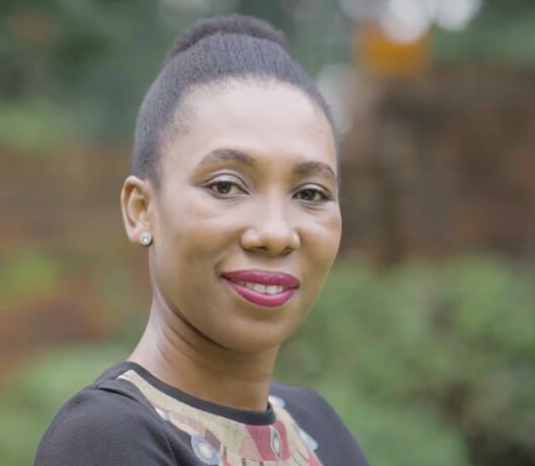Future potential of vaccines
New vaccines and vaccine technologies are a constant source of hope, and are lighting up a healthier future.
Key facts about the future impact of vaccines
50m
It's estimated that vaccination could prevent 50 million deaths in this decade [1].
260
There are 260 new vaccines being developed to protect against a number of diseases and pathogens which lack effective vaccines [2].
100 days
We’ve pledged to respond to future pandemic threats by developing new vaccines within 100 days following the identification of a new threat [3].
Vaccine innovation offers hope for the future
The biopharmaceutical industry is developing new vaccines to prevent diseases like HIV, RSV and Dengue. We’re making vaccines easier to transport, store, and administer. We're also finding new ways to speed up production and make more vaccines when they are needed. Vaccines offer the chance to tackle global health threats, such as antimicrobial resistance. This is a constant source of hope for the future.
Developing and improving vaccines
There are hundreds of new vaccines being developed to protect against a number of diseases and pathogens which lack effective vaccines. The industry is also working to improve existing vaccines so that they work even better and protect for longer. Achieving new breakthroughs can take decades but we're determined to help save lives and prevent hospitalizations.
Juliette
RSV Prevention
RSV
Juliette explains how new innovations to protect young children against the respiratory virus RSV could help over 3 million children who are hospitalised due to this virus every year [4].
Read Juliette's storyJamila
Vaccines Research & Development
HIV
Jamila explains why, even though a vaccine for HIV continues to elude researchers, she’s confident new technologies and ongoing innovation mean it’s within reach.
Read Jamila's storyProtecting older adults from serious illness
Vaccines aren't just for children and young people. As our global population ages, vaccines can play a critical role in protecting older adults from severe illness, helping them to live healthier lives and reducing the burden on our healthcare systems. 80% of vaccines in development are for adults of all ages [5].
2.1bn
By 2050, the world's population of people aged 60 years and older will double to 2.1 billion [6].
Santosh
Vaccines Medical Affairs, India
Pneumococcal
Santosh explains how the pneumococcal vaccine can help to protect older adults from severe infections such as pneumonia, meningitis and sepsis.
Read Santosh's storyRene
Vaccines Innovation & COVID-19 Communications
COVID-19
Rene explains what we’ve learned from the largest vaccine effort in history, and how the biopharmaceutical industry is continuing to innovate and prepare for future pandemics.
Read Rene's storyHelping to prevent cervical cancer
Vaccines to protect against HPV (Human papillomavirus) can help to prevent cervical cancer, the 4th most common cancer in women worldwide [7]. Vaccines give us hope that cervical cancer could be eliminated within our lifetimes [8].
90%
HPV vaccines can help protect against up to 90% of cervical cancer cases [9].
Weerawat
Vaccine Government Affairs, Emerging Markets
HPV
After losing his mum to cervical cancer, Weerawat explains why he’s proud to play his part in improving access to vaccines that help prevent HPV-related cancers.
Read Weerawat's storyTintswalo
Vaccines Policy and Government Relations, Sub-Saharan Africa
HPV
With over 95% of cervical cancer cases caused by the virus HPV, Tintswalo explains how vaccines can help protect women from HPV-related cancer.
Watch Tintswalo's filmPreparing for future outbreaks and pandemics
As the COVID-19 pandemic has shown, the better prepared we are, the faster we can respond when outbreaks happen. That's why the biopharmaceutical industry is developing new vaccines for pathogens with pandemic potential, like influenza. And implementing new manufacturing approaches so we can speed up and scale up development when the next emergency strikes.
100 days
We aim to develop and deploy vaccines and treatments within 100 days of a new pandemic threat being identified [3].
Ethan
Vaccines Research
FLU
Ethan explains how innovation in vaccine technology could lead to next-generation flu vaccines that enable us to get ahead of this fast-mutating virus.
Read Ethan's storyPierre-Damien
Vaccines Manufacturing
Manufacturing
Pierre-Damien explains how innovative new developments in vaccine manufacturing could make it easier to switch to producing new vaccines in response to future pandemics.
Read Pierre-Damien's storyMelissa
Vaccines Supply Chain
Ebola
Melissa explains that while an Ebola outbreak could lead to a pandemic-level threat, thankfully vaccines can help to protect against this deadly disease.
Watch Melissa's filmTackling the rising threat of Antimicrobial Resistance
The rise of drug-resistant bacteria is one of the world's biggest public health challenges. By helping to prevent both bacterial and viral infections, vaccines can help to not only slow the development of drug-resistant superbugs but also reduce the need for and inappropriate use of antibiotics.
500,000
It's estimated that vaccines could help prevent 500,000 AMR-related deaths globally every year [10].
Anish
Research Team Leader
AMR
Anish explains how vaccines can help to protect modern medicine by helping to slow the spread of antimicrobial resistance and prevent life-threatening infections.
Read Anish's storySanjay
Vaccines Research & Development
AMR
A cancer survivor himself, Sanjay explains how vaccines can help to protect those who are at a higher risk of infection while undergoing treatments like chemotherapy.
Read Sanjay's storyProtecting people from mosquito-borne disease
As warmer temperatures bring diseases to new regions and lengthen transmission seasons, vaccines could help to keep people safe from serious illness. Current vaccines help protect people from dengue, malaria and yellow fever, and future vaccines could help protect against Chikungunya and Zika.
20%
It's estimated that in certain regions, mosquito-borne disease cases will increase by 20% over the next 30 years due to climate change [11].
Shibadas
Vaccine Clinical Development
Dengue
Shibadas explains how climate change is putting more people around the world at risk of Dengue, and how new vaccines could help to protect them.
Read Shibadas's storyDennis
Malaria Vaccines Programme
Malaria
Dennis explains how the new malaria vaccine could help save the lives of more than 500,000 African children under the age of 5 who die from malaria every year.
Read Dennis's storyReferences and further links
- Fast Facts on Global Immunization (Centers for Disease Control and Prevention, 2023)
- Medicines in development for vaccines (PhRMA 2020)
- Biopharmaceutical industry collaborates on the implementation of the G7 100 Days Mission to improve readiness for future pandemics (IFPMA 2021)
- The race to make vaccines for a dangerous respiratory virus (Nature 2021)
- Vaccines Europe Pipeline Report (Vaccines Europe 2022)
- Fact sheets: Ageing and health (WHO 2021)
- Fact sheets: Cervical cancer (WHO, 2022)
- A cervical cancer-free future (WHO 2020)
- “The power of science”: HPV vaccine proven to dramatically reduce cervical cancer (Cancer Research UK 2021)
- Vaccines could avert half a million deaths associated with anti-microbial resistance a year (WHO 2023)
- Zika, dengue transmission expected to rise with climate change (University of Michigan School of Public Health 2023)
Tomorrow's vaccines rely on continued investment and dedication
The development of new and improved vaccines is made possible by dedication to science, ongoing innovation, and scientific ingenuity in universities, research institutions, biotechs and research-based biopharmaceutical companies around the world.
Sustained investment in vaccine innovation and continued collaboration with research and development partners helps protect us all against health threats. It also prevents the return of infectious diseases that we have mostly controlled or eliminated and it helps to ensure we are prepared when new threats happen.












